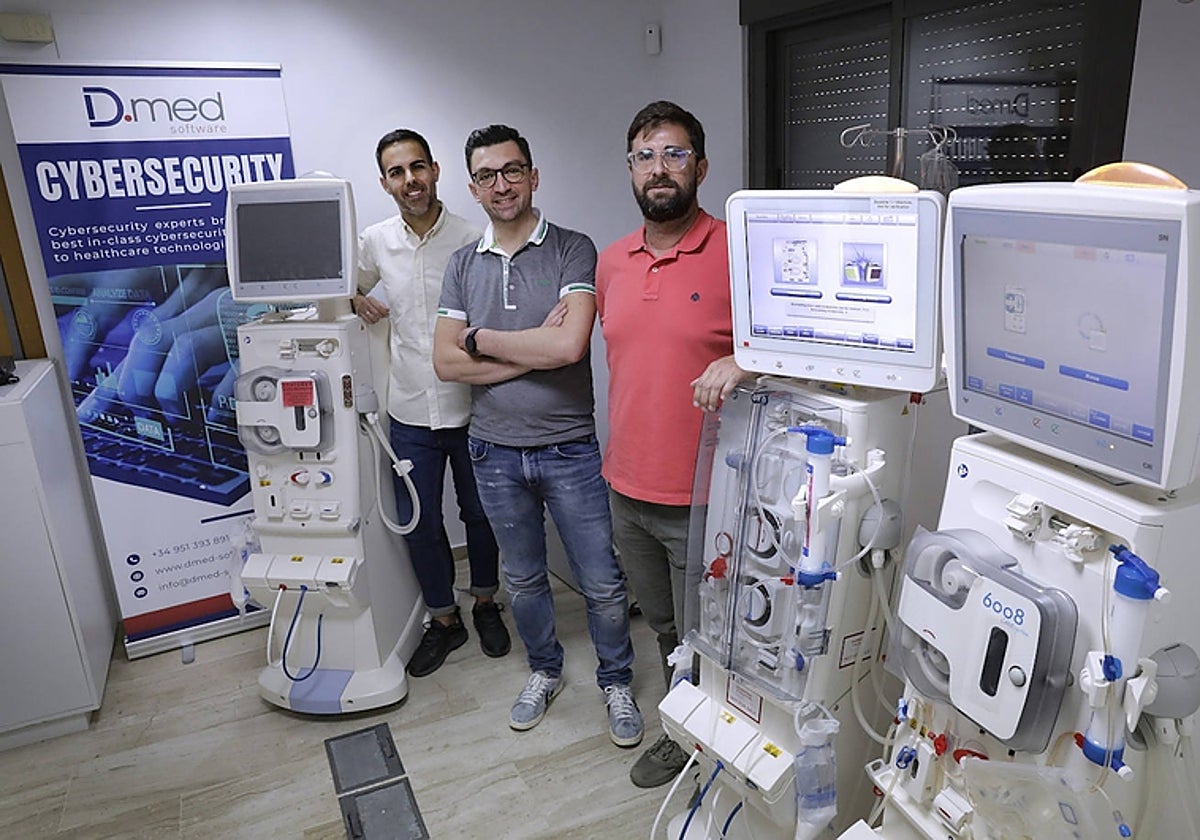D.med Software: the Malaga-based firm helping hospitals in their fight against cyber crime
The software engineering company started out in the city with just three people, now there are 22 employees helping to create cyber solutions to prevent hackers from penetrating computer systems in hospitals and clinics
Nuria Triguero
Malaga
Lunes, 15 de mayo 2023, 17:44
Hospitals are worryingly becoming a more popular target for cybercriminals as they penetrate weak security systems and tap into huge pools of data, but a software engineering firm in Malaga is aiming to put a stop to it.
Hacking can have shocking consequences, particularly at hospitals, where one person died in 2019 as a result. A woman in Germany was in a critical condition and needed to be operated on immediately, but a ransomware attack locked the hospital’s computer system. She needed to be transferred to another clinic 30 kilometres away, where she eventually had surgery, but it was too late and she died.
In 2021, another shocking case went to court where a nine-month-old baby girl in the USA died as a result of brain damage from complications at birth. The mother found out days later that the hospital where she gave birth was hacked at the time, which affected, among other files, those involved in the operation of the machines that detected the foetal heartbeat. That explained why doctors could not notice any problems with the child’s heart. Had they seen it, they would have performed an emergency caesarean section.
D.med Software, is a German-owned company based in Malaga which is developing cybersecurity solutions specifically designed for healthcare devices, and to prevent such terrible incidents.
"Imagine what could happen if the life support machines in an ICU stop responding," head of software engineering, Alessandro Vitiello, said.
The topic of cyber attacks on hospitals was raised at the Andalucian cybersecurity congress, held in March in Malaga, a few days after the notorious attack on a clinic in Barcelona.
Experts said that hospitals are poorly protected and therefore easy for cybercriminals to attack, with telehealth care also increasing the chances for clinics and hospitals to be targets.
There are many devices loaded with sensitive data and equipped with internet connectivity, without adequate protection. Traditionally, manufacturers of these devices have prioritised patient safety, but have not taken cybersecurity into account, experts said.
But Vitiello said this is changing, with many laws now covering cybersecurity. In both the United States and the European Union, regulations were passed in 2021 that made it mandatory for all medical devices to be equipped with cybersecurity and a report on its security status provided.
Specifically in Europe, a deadline of 2023 was initially set for all devices to comply with the requirement, but with the industry falling behind, the deadline has been extended to 2027. This is where D.med can help businesses. "It's going to be a very good few years for us," said Alejandro Torres, head of business development at D.med.
Industry catches up on cyber security
To take advantage of the opportunity, the firm has expanded its focus from dialysis machines to all types of medical devices.
"In Spain there are no major manufacturers, but there are many healthcare start-ups developing applications for medical devices. We can help them bring the product to market because it is not easy to meet the regulatory specifications of the sector,” Vitiello said.
D.med was established in Malaga in 2018, with three people. Now there are 22 and it continues to grow. "In the last two years we have tripled our staff and last year our turnover grew by 187%. And so far this year, we have accumulated a 40% year-on-year growth," Vitiello said.
And Vitiello has hopes to hire eight more people by the end of the year. "Until recently we didn't have any problems recruiting engineers, but lately you can feel the battle to attract talent in Malaga. You need five to seven months to fill a vacancy,” Vitiello said.
The firm will start collaborating with the UMA to offer internships and help generate a skill pool of talent, which was one of the reasons why the firm established a base in Malaga.
Vitiello, the Italian-born engineer was already based in Malaga and said: "I was already living here and had started working with the D.med group in 2015. After three years of preparing the ground, in 2018 we created D.med Software. We chose Malaga because it is the perfect place to create a software company and make it grow.
"It is a technological hub and because of the pool of engineers generated by the UMA. Now many more companies are coming and we welcome them with interest because they can be our partners.”
